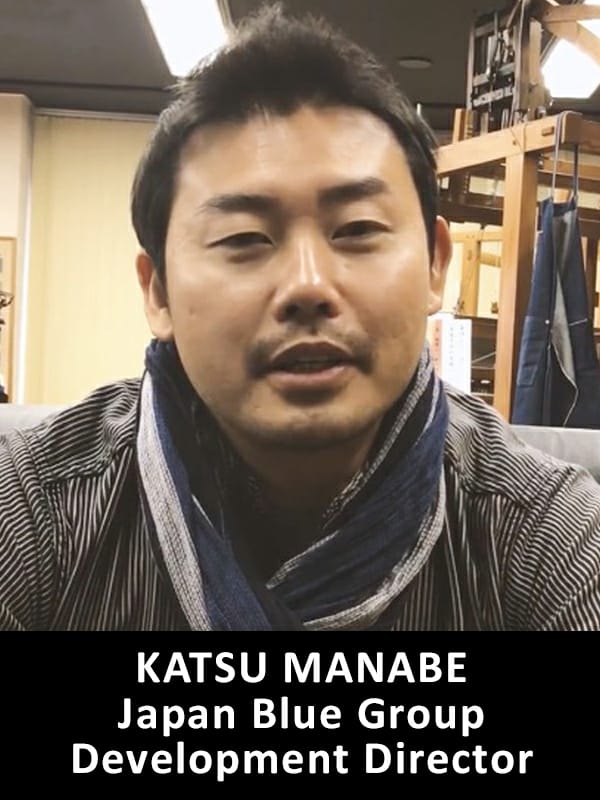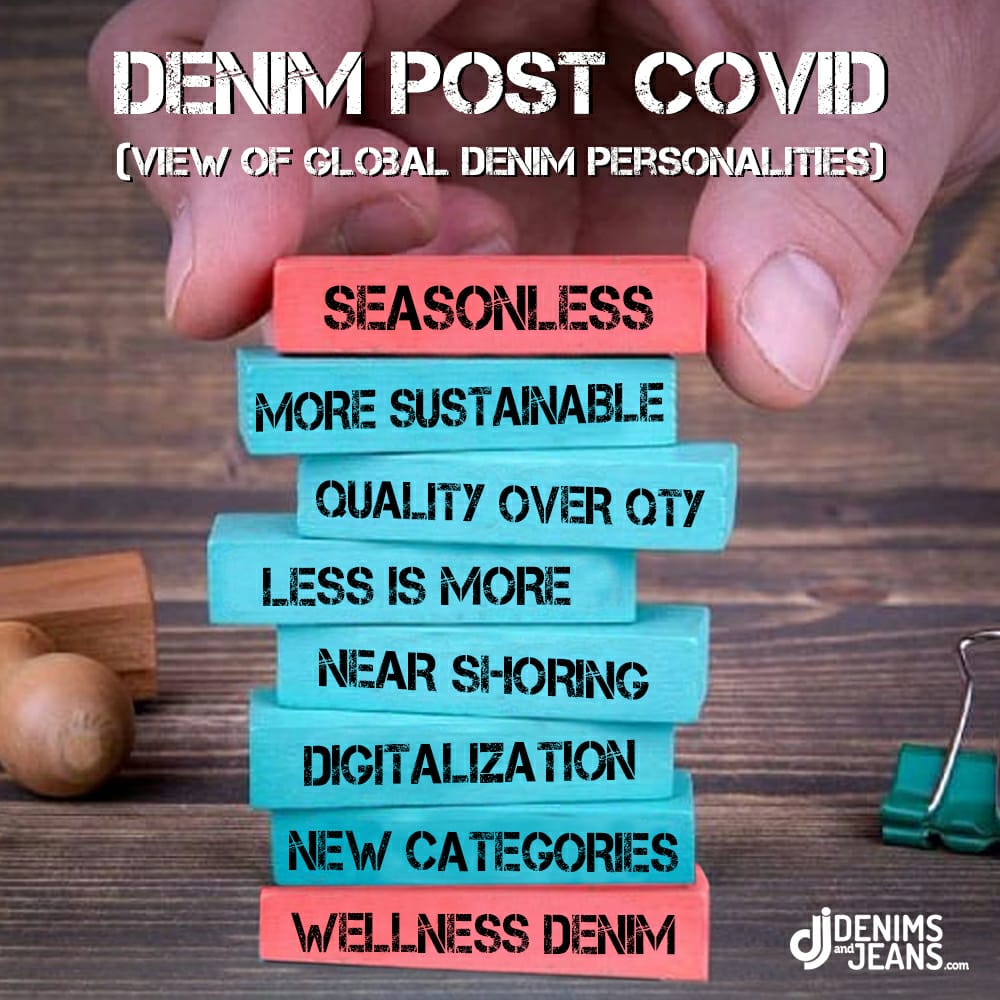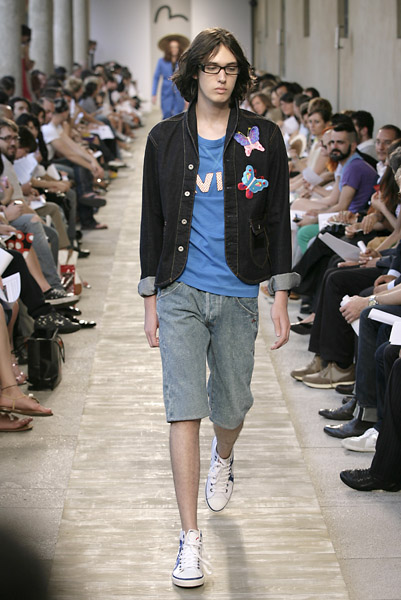In these times of crisis , we are all badly effected and most business is in a turmoil. This includes our fashion and apparel industry which is in throes of a huge disaster as global markets are shut down, retailers are closing their stores affecting the entire supply chain . The future is very uncertain and we really need to make sense of the current situation and understand in some way how it may unfold in the future . Keeping this need in mind, we started our series of talks with some global denim personalities around the world to understand their analysis of today and tomorrow . The views shared have been very insightful and give us an understanding how we may need to plan and repurpose ourselves and our business. Sharing herewith comments and quotes from the experts .
Adriano Goldschmied
Next year for sure we’re gonna be down in our business at least by 50%. It will have a terrible impact on the organizations of all supply chains globally. It will hit dramatically in countries where textile is a big part of their economic sector.

All the digital shopping is going to be booming but they are going to reconsider shopping in a more responsible way. They will buy less and buy better. Transparency will be more evident and help the consumer make better choices with the information provided.
The rule was that we come to the market with new products every six months. We need to change our method of work and to be more open-minded. There is no obligation to make 40+ piece collections. We should bring new products to the market when it is interesting for the market. This way will be much more simple.
The reaction to the new normality will be different in Asia (especially China) & in emerging countries. People are at home for a long period of time and they are anxious and probably the reaction for them is to go shopping again. It will probably be a shopping party. On the other side, in America & Europe, consumers will reconsider their way of shopping.
When we come out of this pandemic, we will have a new face of our business.
Enrique Silla

I anticipate that 50 % of the brands and retailers will disappear. This is our calculations. I anticipate that 50 % of the manufacturers will disappear and we will face a very strong very strong consolidation
Consumers will not buy again a product that has been manufactured by taking care of our rivers , our see and our planet.
Europe is 10 % online, China is 20 % , but after this China will be 40-50 % online.We need to sell online and we need to completely change our operational models.
We anticipate that some countries will be winners like Turkey , Mexico , Portugal.
We already launched a program on demand manufacturing . We really believed that COVER-19 had accelerated that.
Alberto Candiani

I find this entire season thing a bullshit thing. I mean look at the seasons they don’t really make sense. Sometimes we look at the crazy product cycles for the same product or similar products.
If It’s a pair of jeans just make sure it’s relevant enough to look in a way it was supposed to be. I think while we go forward we have to look at more relevant changes, the whole new cycle again for something which is not relevant so maybe this break again.
More special finishings which will not necessarily alter characteristics of the jeans. We’re looking at finishings, they’re transparent so on paper they’re are not really interfering with the aesthetics of denim unless you want them to , unless you want to create something special something which looks different from usual denim
We are now talking about basic core products which are of high quality, which keep on going for a couple of seasons and so I mean this is a complete change in that way.In fact you know it has been started probably something back but still it will continue further and it will be accelerated for.
The reaction to the new normality will be different in Asia (especially China) & in emerging countries. People are at home for a long period of time and they are anxious and probably the reaction for them is to go shopping again. It will probably be a shopping party. On the other side, in America & Europe, consumers will reconsider their way of shopping.
When we come out from this pandemic, we will have a new face of our business.
Video
Stefano Aldighieri

There’s no easy solution, but what is going to be interesting to see is how committed they will still be to the whole sustainability and ethical principles, all these companies. Because one thing is to say that you are committed to doing everything socially right, and ethically right, and environmentally right when things go relatively well, but when you’re into an emergency like this you tend to forget those things.
You know some time back all brands were racing to see who was the most sustainable company out there up to a few weeks ago? I want to see how many of those are really, really serious about it, and how many will not stick to those principles because being sustainable means also taking care of your partners in the supply chain, and I know it’s a really really difficult thing to do because at some point you have to decide what you’re going to cut, what are you going to sacrifice, and unfortunately it is human nature to take care of the ones that are closer to you than the ones who are far away.
Sedef Uncu Aki

There is a term called REVENGE SHOPPING – which all the countries might see especially countries like China. But in Europe, they are focusing on understanding the situation. 90 % of the stores are open in China but total spending has been decreased by 50 %. Therefore people are not starting to shop right away. What we have seen so far from the previous world crisis is that consumers take 1-2 years before they actually regain their interest in shopping.
There is a term called REVENGE SHOPPING – which all the countries might see especially countries like China. But in Europe, they are focusing on understanding the situation. 90 % of the stores are open in China but total spending has been decreased by 50 %. Therefore people are not starting to shop right away. What we have seen so far from the previous world crisis is that consumers take 1-2 years before they actually regain their interest in shopping.
Durability, Built for life, and sustainable, circular design. We are focused on developing eco net-positive, high-quality fabrics. We are engineering for durability and long-lasting comfort and performance, optimizing our usage of recycled cotton, both pre and post-consumer, and creating revolutionary new levels of water- repellency, self-cleaning, anti-bacterial, thermoregulating products.
Complete Talk | Video
Albert Tjandra
By all means, logistics and distribution will definitely change. The supplier needs to be closer to the consumer in this way. All kinds leading to near sourcing will imply sooner or later.

People who have been in digitalization will keep doing so, and others will start to follow, I had even seen these in our local market which Indonesia just had few digital market-place to go e-comm for textile and apparels, but their rating and sale numbers are spiking up during this situation.
The Millenials and Z Gen are the most active visitors for these. And yes, we all know they are roller spenders but somehow they are less dropping attention to identify what the brands are. These are the generation that doesn’t care about names and brand tags.
In terms of quantity may also be simply changed, they will not aim for more, instead, they will be very particular on what they want to buy, They will buy in better quality and make better choices.
Lucia Rosin

This huge cancellation really creates a big problem for the workers. Some brands, retailers, need to cancel because they have no orders/garments in the shop. So, for the future, some brands have already started focusing on basic products, well-done products.
Focus more on long-lasting products, non-seasonal products because we have SS currently, we need to be ready for winters but some companies are closed. So, we need to create a collection with no season according to my view.
Michelle Bracha
So maybe instead of a 20 piece collection, a denim collection, we focus on those five things we don’t need to do the other 15 because the five things and things that are going to sell. So much of these products get made and they get marked down, sold off and end up in landfills. Therefore, we have to create less.
Seasons – I think for the most part yes there will still be some seasonal things like sleeveless tops and five-ounce jeans. Those kinds of things. They will still remain but they’ll be one or two. They won’t be an entire collection and I think that’s the main point.

I think out of necessity PPE denim may become a category for the short term. I don’t know that it will stick around forever as much as we wear it every day but we will be able to flip back into it.
Category of indigo knits that were starting to explode. Everybody’s just waiting until they can figure out how to do it more efficiently so that’ll probably grow.
But others may change their way of shopping. By all means, logistics and distribution will definitely change. The supplier needs to be closer to the consumer in this way. All kinds leading to near sourcing will imply sooner or later.
On some possibility stage, along with consumer demand changes, denim will be provided as a safety protection product somehow.
We had been enjoying the privilege of having premium denim for better margin, for just appearance and feel. Now they will ask what premium can give them a better and healthier life enhancement?
There might be a temporary advantage for the factories that are close to the markets, so for the US, I think there will be Mexican factories. For Europe, you’re going to probably see Turkey.
Alice Tonello

It is the right time to think about the volume that we are producing, to think about the quality, to think about how sustainability has been used inappropriately. I think some deeper thought process is required when we go back to normality.
I don’t know if it will be a priority for the consumer when we will return back to normality to buy a pair of jeans but I believe that they will take care much more about a lot of things including water, chemicals, and other resources exploited to make a pair of jeans.
I feel retailers will be more comfortable having very short runs and they don’t want to wait for long lead time, items in production which are to be delivered in five to four months and to be in stores in six months. So probably they would like to have shorter bets – for two months or three months.
Consumers now have a break in their spending and they will get more time to think about what they are doing. This may lead them to re-evaluate what is the value of spending money on goods. So my view is that we must value high quality, more durable, sustainable products. I think this pandemic will go down in history as a great global reset in the system and the consumers really start thinking about these values.
Complete Talk | Video
Neeraj Sachdeva

I think one thing that is gonna make a huge comeback is the brick-and-mortar store. I think all of us will rush back to engage with humanity as you said to actually touch t feel because of the product and I think currently three weeks in I’m a bit dizzy and I’m a bit digital afflicted and I will be okay not to see my computer screen for hours and hours and hours then because that’s all I do ten hours a day now.
So I think this season analogy has been abandoned as the collections are coming after every alternate month, I guess. So I do not think that there is anything new about it. I guess we should ask retailers not to produce in such heavy quantities.
Vasco Pizzaro

I think the measurement mechanics of sustainability needs to be expanded a little bit. Especially in how you measure it because I think it’s that the standards can be deceitful now today because I know that there are a lot of people that have their companies based on ZHDC or other parameters.
The producer and manufacturer need to be more united, irrespective of the competition. I often wonder about how it could be, if we the producers and the manufacturers and the laundry houses and all the little guys unite themselves.
Instead of seasons, you see more through with presentation and instead of being colder, this winter season or fall or spring or summer, you kinda see a flow and you see variances that you couldn’t see in another place. I think the frequency with which we have been launching our collections have already made it seasonless.
I believe that if you stay and if you have the ability to endure this time it can be very beneficial for you in the future.
Dilek Erik

These days, we’ve been living three major social changes. One of them is Women Empowerments or Gender Equality, Unisex fashion let say and it changed fashion. The second thing is Sustainability which is being talked about quite a few times and the third thing is Technology. Whenever we talk about technology, we think about computers or laptops or the internet. We’re not using technology in fashion yet, only a few companies and that too in very limited ways. This is going to change.
We need to develop smart habits and smart fashion. Whoever develops smart fashion and connects it with the right technology and finishing will last for a long time. Smart fabrics, which were developed by Levis in a partnership with Google, and these kinds of innovations will be required in the coming years. So this is the future and creates more and more demand.
I think so, also there will be a paradigm change in the presentation of the products and also in the ways exhibitions have been happening right now. The concept of online sourcing has already been introduced and much more will come into the picture very soon. We are now doing video shoots of our products and involving more and more digital solutions.
We always say less is more and good, but we do not practice as all the brands push people to buy more and more by offering discounts, so we need to be a little more honest. We talk about sustainability but if we sell like this, I do not think this is a sustainable practice. We should focus more on quality and long-lasting products but I don’t think this is happening very soon, it will take time.
Complete Talk |Video
Tricia Carey

We have this terrible way of promotion all the time, you need to have 60% off in order to sell apparel because customers are just trained that way. I wish that the US retailers operated more like some of the European retailers and with sales twice a year and that’s it. Start fresh in some ways.
We will have this time to re-evaluate and look for clothing which will become more of protection. Now we look at how we can protect ourselves against getting this virus. Whether that’s masks or other apparel. Also now we look at how our apparel protects us and keeps us safe. This is also a mindset change.
So I think we will be back to basics. That’s happening. People will be again looking for comfort. They will be looking for fabrics that can protect them, whether it’s antimicrobial or antibacterial finishes. So I think there will be some changes. I also think knits will increase.
There’s a comment here about a season less also being long-lasting and this goes back to consumption changes.
I would add to that performance. Regional or near sourcing definitely. Sustainability Environmental and social concerns
A lot of things are going to be virtual and digitalization of most of the process is going to happen now.
Complete Talk |Video
Katsu Manabe

We need to decide to change how to communicate. We have to use digital ways to communicate with people. The export can be made smoother because we can contact online and can support afterward also. Secondly, we need to focus on production, because after this many people would have lost their job and it is very difficult.
From the above talk some key words emerge :
Seasonless – Near Shoring – Sustainabiity with humanity – Quality Over Quantity – New Categories (Health & Welness, Loungewear , Homewear etc)- On Demand Production – Digitalized Presentations and Developments etc
All these point to a changed face of business which is likely to be much smaller and more agile and highly consolidated once it comes back on its feet .
We will come out with the second part of our talks in another article with many other experts sharing their views . Do keep tuned.




